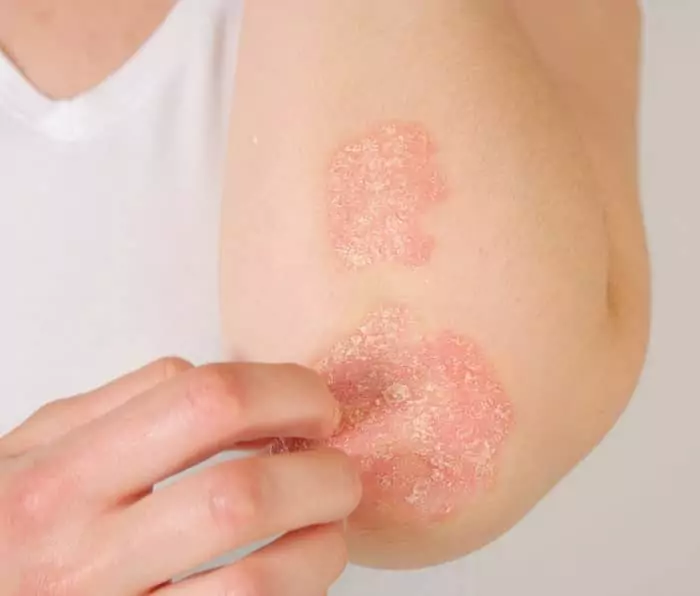Eczema Medications and CBD: As someone who suffers from eczema, you know all too well the discomfort and frustration that comes with the condition. Eczema can be triggered by a variety of factors, including stress, allergies, and environmental irritants. While there are many prescription and over-the-counter medications available to help manage eczema symptoms, some people are turning to CBD as a potential treatment option. In this article, we will take a closer look at eczema medications and CBD, their potential benefits, and how they work.
Table of Contents
Are you looking for a natural way to manage your eczema symptoms? CBD may be the answer you’ve been searching for.
Eczema is a skin condition that causes red, itchy, and inflamed patches on the skin. It can affect people of all ages and can be triggered by a variety of factors, including stress, allergies, and environmental irritants. While there is no cure for eczema, there are many medications available to help manage the symptoms. These medications include topical creams, ointments, and oral medications.
However, some people are turning to CBD as a potential treatment option. CBD, or cannabidiol, is a natural compound found in the cannabis plant. It has been shown to have anti-inflammatory and analgesic properties, which could make it a promising treatment for eczema.

Eczema Medications and CBD:
Eczema Medications
There are many medications available to help manage eczema symptoms. These medications work by reducing inflammation and itchiness, and they may also help to repair damaged skin. Here are some of the most commonly prescribed eczema medications:
1. Topical steroids:
Topical steroids are the most commonly prescribed medication for eczema. They work by reducing inflammation and suppressing the immune system. There are many different strengths of topical steroids, and your doctor will prescribe the appropriate strength based on the severity of your eczema.
2. Topical calcineurin inhibitors:
Topical calcineurin inhibitors are a newer class of eczema medication. They work by suppressing the immune system and reducing inflammation. These medications are typically used for mild to moderate eczema, and they may be used in combination with topical steroids.
3. Oral medications:
In some cases, oral medications may be prescribed to help manage eczema symptoms. These medications include antihistamines, which can help to reduce itchiness, and immunosuppressants, which can help to reduce inflammation.
CBD and Eczema
CBD is a natural compound found in the cannabis plant. It has been shown to have anti-inflammatory and analgesic properties, which could make it a promising treatment for eczema. While more research is needed, early studies have shown promising results.
One study published in the Journal of Dermatological Science found that CBD may help to reduce inflammation and itching in eczema patients. Another study published in the Journal of Clinical Investigation found that CBD may help to regulate the immune system, which could make it a potential treatment option for autoimmune diseases like eczema.
How CBD Works
CBD works by interacting with the body’s endocannabinoid system (ECS). The endocannabinoid system is a complex network of receptors and neurotransmitters that help to regulate many of the body’s functions, including inflammation and immune response. When CBD interacts with the endocannabinoid system, it can help to reduce inflammation and regulate the immune system.
CBD may also help to soothe irritated skin by interacting with receptors in the skin. These receptors are responsible for regulating pain and inflammation, and they may play a role in the development of eczema.
Eczema Medications and CBD: Conclusion
Eczema Medications and CBD: If you suffer from eczema, you know how frustrating it can be to manage the symptoms. While there are many medications available to help manage eczema, some people are turning to CBD as a potential natural treatment option. While more research is needed, early studies suggest that CBD may help to reduce inflammation and regulate the immune system, making it a promising treatment option for eczema.
It’s important to note that while CBD may have potential benefits for eczema, it should not be used as a replacement for prescribed medications. If you are considering using CBD to manage eczema symptoms, it’s important to talk to your doctor first. They can help you determine if CBD is a safe and effective treatment option for you.
When it comes to choosing a CBD product, it’s important to do your research. Look for products that are third-party tested and made with high-quality, organic ingredients. It’s also important to start with a low dose and gradually increase it until you find the dosage that works best for you.
Eczema Medications and CBD: In conclusion, eczema can be a frustrating condition to manage, but there are many treatment options available, including prescription medications and natural remedies like CBD. If you’re considering using CBD to manage your eczema symptoms, talk to your doctor and do your research to ensure that you’re using a safe and effective product. With the right treatment plan, you can manage your eczema symptoms and improve your quality of life.




[…] Eczema, also known as atopic dermatitis, is a common skin condition that affects millions of people worldwide. It is characterized by dry, itchy, and inflamed skin that can be painful and uncomfortable. While the exact cause of eczema is not yet fully understood, it is thought to be a combination of genetic and environmental factors. […]